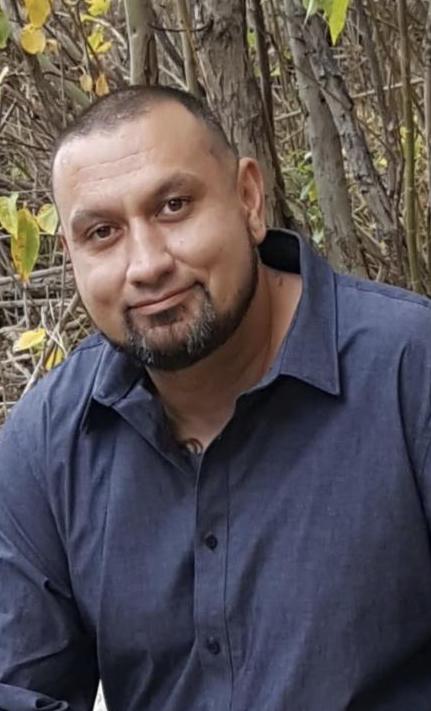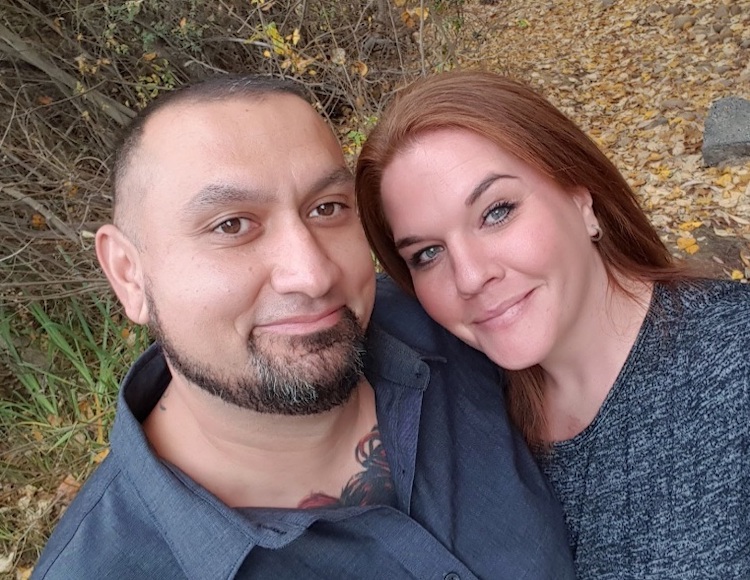Fighting for compensation in a state that offers no relief to the wrongfully convicted

Christopher Tapp: “It was a horrible feeling to just be thrown away. I knew I was innocent. I knew one day I would be free. I just didn’t know when.”
At the age of 22, Christopher Tapp faced the possibility of spending the rest of his life in prison—a prospect made even more frightening because he knew he was innocent. “I am not the monstrous animal everyone thinks I am,” Tapp said during his sentencing hearing.
Tapp had confessed to being involved in the rape and stabbing death of Angela Dodge, 18, in her Idaho Falls, Idaho, apartment in 1997. He later recanted, saying that under pressure from police, he made up a story that he and two others committed the crime. The jury didn’t believe him, and the judge sentenced Tapp to life in prison. His alleged accomplices were never prosecuted.
Years went by while attorneys attempted to prove Tapp’s innocence, and his life remained on hold. “It was a horrible feeling to just be thrown away,” he says. “I knew I was innocent. I knew one day I would be free. I just didn’t know when.”
In prison, Tapp had few resources to prepare for what he hoped would be his eventual release. “The prison didn’t see me as an innocent man; they just saw me as a convicted murderer with a life sentence. You have nothing coming inside the prison system as a lifer,” he says. “They don’t help prepare you to get into classes or with anything that’s going to help you get back out into society. It was all about warehousing me.”
With the help of his public defender, John Thomas, the New York-based Innocence Project and the Idaho Innocence Project, Tapp was eventually able to prove through DNA evidence that he could not have raped Dodge. The victim’s mother, Carol Dodge, became one of Tapp’s strongest advocates after viewing tapes of his interrogation that left her deeply troubled.
Based on the DNA evidence, the Bonneville district attorney’s office agreed in 2017 to vacate the rape, but not the murder conviction. Prosecutors instead offered to reduce Tapp’s murder sentence to time served, allowing him to be immediately released. But it also meant he had to agree to waive further appeals, thus preventing him from seeking compensation for a wrongful conviction.
It was a difficult decision, but Tapp wanted out, and was willing to live free as a convicted felon. “Myself and my attorneys thought what we got at the time was the best thing that could happen for me,” says Tapp, now 43. “We got my freedom. I was able to be with my mother and start living life like I should have been in 1997.”
At the top of Tapp’s to-do list was to visit the grave of his father, Payton, affectionately known as “Junior,” who died in 2000. Prison officials did not allow him to attend his dad’s funeral. “We were very close,” Tapp says. “It was very hard.”
Free But Not Whole
Little about freedom has been easy. When Tapp walked out of prison, he had few employable skills, little education and a big gap on his résume. He also had no money. He stayed with his mom for a few months, and he got a job with a construction company shoveling hot asphalt with a road crew. It was hard manual labor, and he knew he wasn’t going to last.
“A lot of people told me that once I got back to work and got back into the swing of things that life would get better. But it really didn’t,” Tapp says. “The idea of reintegrating is different from what most people think. I have daily challenges that most people don’t have, and I still have them after being home for three years. I have to see a therapist for a lot of the issues that were raised over these 20 years of my life.”
He had trouble focusing at work and felt his life unraveling. “You know how a train goes down the rails, and you know it’s gonna come off and there’s going to be a big crash? I felt that coming inside me because there was still so much stuff I hadn’t dealt with, or didn’t bring out or that came to the surface,” Tapp says. “I thought I was OK. I thought I was mentally and physically OK, but over time, I could see the decline of me.”
Tapp also struggled dealing with people he once thought were friends. Those same people abandoned him after his conviction, believing he was a rapist and murderer.
“For 20 years, I didn’t get birthday cards, I didn’t get Christmas cards, except from my mother,” Tapp says. “For 20 years, everybody turned their back on me. For the first few months I was home, I remembered all of that. A lot of people didn’t think I was worth something, and that I could just be thrown away. That’s all they saw.”
Like many in prison, Tapp’s health suffered. “Prison is rough, no matter how you do it. And the sad part is that the medical care you receive while you’re in there is horrible. It’s truly disgusting,” Tapp recalls. “I’ve been paying for a lot of my medical care now, like my dental work. Since I’ve been released, I had to get my whole mouth redone. I’ve lost five or six teeth because of the way they treat you in prison.”
 Christopher Tapp confessed to being involved in the rape and stabbing death of Angela Dodge, 18, in her Idaho Falls, Idaho, apartment in 1997.
Christopher Tapp confessed to being involved in the rape and stabbing death of Angela Dodge, 18, in her Idaho Falls, Idaho, apartment in 1997.
Proof of Innocence
Though Tapp was out of prison, his attorneys kept working to clear his name, and detectives continued to pursue leads in the rape and murder of Dodge. In the summer of 2019, thanks in large part to the persistence of Carol Dodge, police tracked down a suspect through genetic genealogy and got a DNA match. The suspect, Brian Leigh Dripps, eventually confessed to the rape and murder—alone. It turned out Dripps lived across the street from her at the time of the crime.
Tapp, finally, was fully exonerated.
Although Tapp was cleared of both the rape and murder convictions, he was not still entitled to receive compensation through the state of Idaho, which is one of 15 states that do not provide such relief. That meant if he wanted compensation for his wrongful conviction, he would have to sue in civil court.
“If you’re in a state with no compensation, you have to be reliant on everyone else to take care of you, and you don’t want that,” says Tapp. “My mother, god bless her soul, worked two jobs, the whole 20 years I was incarcerated, to support me. She mortgaged the house to pay for my trial attorney.”
Tapp filed an intent to sue the city of Idaho Falls late last year, claiming his First, Fourth, Fifth, Sixth, Eighth and 14th Amendment rights were violated.
Rebecca Brown, director of policy for the Innocence Project, says civil suits seeking awards for wrongful convictions rarely succeed. “They are incredibly difficult claims to make,” she says. “You have to prove official misconduct and prove a constitutional violation. Would it rise to the level of a constitutional violation? What we see in reality is that very few cases rise to the occasion.”
Jon Loevy, a civil rights attorney in Chicago, has filed many such cases on behalf of the wrongfully convicted, and has won more $100 million in verdicts against the city for both wrongful conviction and police misconduct cases. The challenge, he says is that he has to prove “intentional misconduct by a state actor.”
That means going after the police, because prosecutors are generally immune from civil liability. Many of his cases have involved false confessions, often at the hands of detectives notorious for using physical or psychological torture.
Chicago has earned the label as the false confession capital of the U.S. due in large part to former Chicago police commander Jon Burge, who along with his “midnight crew” was found responsible for beating, electrocuting and intimidating suspects from the 1970s to the ’90s. Burge died in 2018.
“In my experience, there have been two kinds of cases. There are some law enforcement officers who are cynical or jaded and are framing people and just don’t care, and they get false confessions,” Loevy says. “Then there are some police officers who are well-meaning, and they develop a hypothesis and get tunnel vision.”
Changing the Laws
Such patterns are familiar to attorneys with the Innocence Project, which has helped free hundreds of wrongfully convicted people. In addition to its work helping free the wrongly convicted, the Innocence Project has lobbied states that do not have compensation laws to create them, including Idaho. Not long after Tapp filed an intention to sue the Idaho Falls Police Department, a state legislator sponsored a compensation bill.
“People who have been wrongly convicted have been robbed of years of their lives, and once they have been fully exonerated, they are left to pick up the pieces of their lives on their own,” Republican State Rep. Doug Ricks said in a statement. “When that happens, we as a state, as a society and as citizens have an obligation to make it right. This bill is a big step forward in the right direction.”
Brown says there are many factors to consider in compensating those who were wrongfully convicted. They often leave prison with no financial support, and they are ill-prepared for life on the outside. They need an income for food, housing, transportation medical care and health insurance.
“There are people who have never been to a doctor or who have received psychological or counseling services” Brown says. “We don’t have one client who doesn’t have PTSD.“
Compensation laws vary from state to state and, according to the Innocence Project, are often insufficient. Many states require those seeking compensation to show they are factually innocent through certificates of innocence from judges, and sometimes require they prove they did not engage in any kind of misconduct to cause their conviction or have pled guilty. Those who confessed under duress, for example, might be ineligible.
The Innocence Project has developed a model compensation bill that takes these factors into consideration. The model suggests the wrongly convicted receive not less than $64,168 for each year of incarceration, with an additional $64,168 for each year served on death row.
The Idaho law, crafted with the help of the Idaho Innocence Project and Rep. Ricks, proposed that the state pay a wrongfully convicted person $60,000 for every year spent in prison. Those on death row would receive $75,000 per year. Under the plan, the money would be paid in installments of $85,000 per year, though a judge would have the discretion to order it paid in a lump sum.
Tapp can’t afford to wait for the state to give him money, and has continued to work since his release. He left his construction job and now works as a quality inspector for a company that makes flexible plastic bags for produce, frozen foods and lawn and garden products. He also married a schoolteacher he met through Facebook.
“She sent me a message, and it was just one of those things. I sent her one back,” he says. “We met for coffee and have been inseparable since.”
Marriage also made Tapp a stepfather to three children ages 16, 14 and 21. “Most people started their lives already and got married and had kids,” he says. “I didn’t have the opportunity to have my own kids.”
 Christopher Tapp and his wife, Stacy.
Christopher Tapp and his wife, Stacy.
Hope turns to disappointment
Things were looking up for Tapp after he testified about the importance of the compensation bill before the Idaho legislature. The measure easily passed the house and the senate by mid-March. Tapp expected Gov. Brad Little would sign the bill shortly thereafter.
“For most of us exonerees, what we want is, ‘We’re sorry.’ A lot of us never get that in our lives. So, the compensation is a little bit like the state saying, ‘Hey, we made a mistake,’ but I don’t think the state is saying we’re sorry by giving us the compensation; it’s just their way of trying to make things even, I guess.”
On March 30, while he was still at work, Tapp got the news: The governor vetoed the bill. “It was just devastating, crushing,” Tapp says. “It blindsided me.”
In a letter outlining his reasoning, the governor wrote that the bill “had an admirable objective,” but a “flawed process.” He argued that it created unfunded mandates to cover medical insurance and state college expenses among other procedural flaws. “I admire the intent of this bill, and my office will work with the sponsors to hopefully rectify these issues to produce a bill that creates an acceptable process for quickly compensating the wrongfully convicted.”
Peter Neufeld, co-founder of the Innocence Project, says any differences could have been hammered out before the final bill. “Everybody was blindsided by the veto,” Neufeld says. “Chris was counting on this. He has a lot of debts and he’s been accumulating more. He was counting on Idaho State to cover his education. Some of his most basic needs have been ripped out beneath him.”
If Tapp eventually files a civil suit his case he faces significant hurdles. Many police officers involved in the original investigation have since retired, memories fade, evidence can get lost or destroyed. “Institutional obstacles make it difficult,” Neufeld says.
Tapp sees passage of the compensation bill as important not just for himself, but for others such as Charles Fain, another Idaho man who was wrongfully convicted and on death row for 17 years before being released in 2001. Fain also testified at the hearings.
“He’s been out for 19 years and has had no compensation, no medical, no anything. That’s more heartbreaking to me,” Tapp says.
Somehow, Tapp plans to scrape together enough money to go to college in the fall. “I wanted to come home and show that I was worth something. So, I continue to strive and get better and do better with myself and that’s part of the reason I want to go to college,” he says. “I want to better myself as a whole. I want to be able to help more people, like people helped me.
He plans to study social work. “I want to go into social work because I have a lot of life experience because of all this,” he says. “It’s sad that I got this life experience. But if I can help somebody else not have to go through what I had to go through and thousands of other people had to go through, then that’s what I want to do with my life.”
Tapp says he’s sincerely grateful to the people of Idaho who supported the bill. “I am appreciative of the Senate and the House of Representatives for supporting this bill,” he says. “We won’t give up the fight, and we’ll be back next year.”
Carol Dodge wrote a letter to the governor, published in the Idaho Falls Post Register, after the veto. “I cannot even begin to comprehend why you did such a thing,” Dodge wrote. “Don’t you think the state of Idaho owes him something, a lot actually, for all the years that were wrongly taken from him?”
While she hopes Tapp will eventually be compensated, she still grieves for her own deep loss. “I lost my only daughter to a brutal murder,” Dodge says. “There is nothing that will replace my losses.”
Tapp understands. And whether he’s ever compensated, Tapp is circumspect about what it would mean to him. “A lot of exonerees will tell you the same thing: There is no amount of money that will ever make things better,” he says.
See also:
ABA Journal: “Genealogy sites give law enforcement a new DNA sleuthing tool, but the battle over privacy looms”



